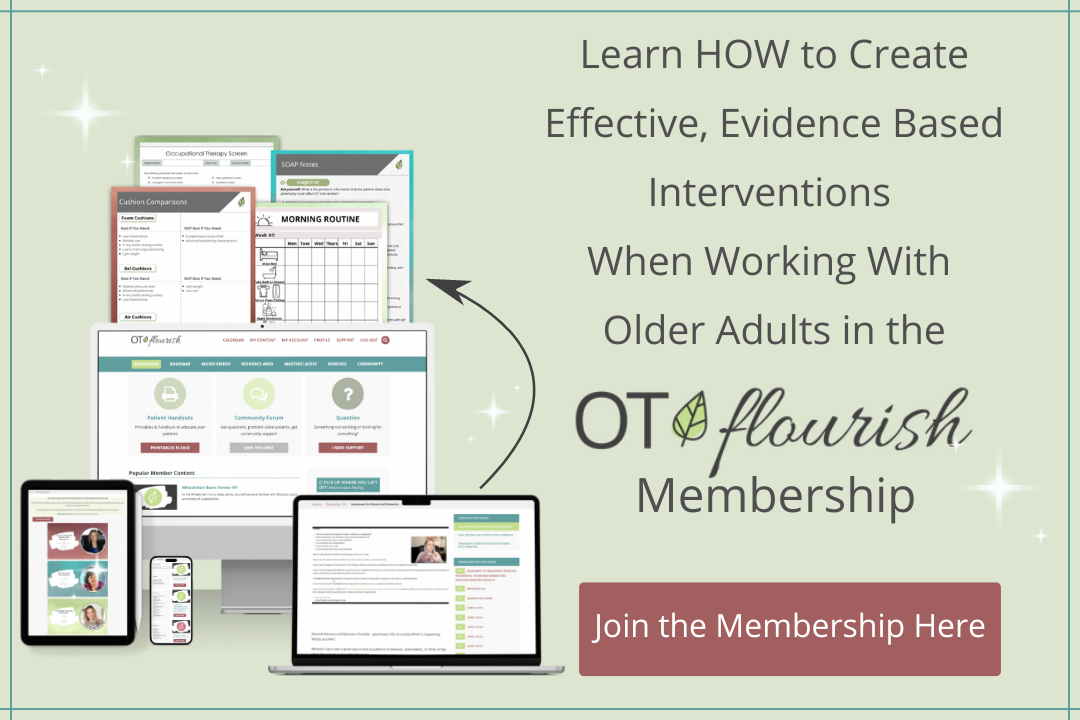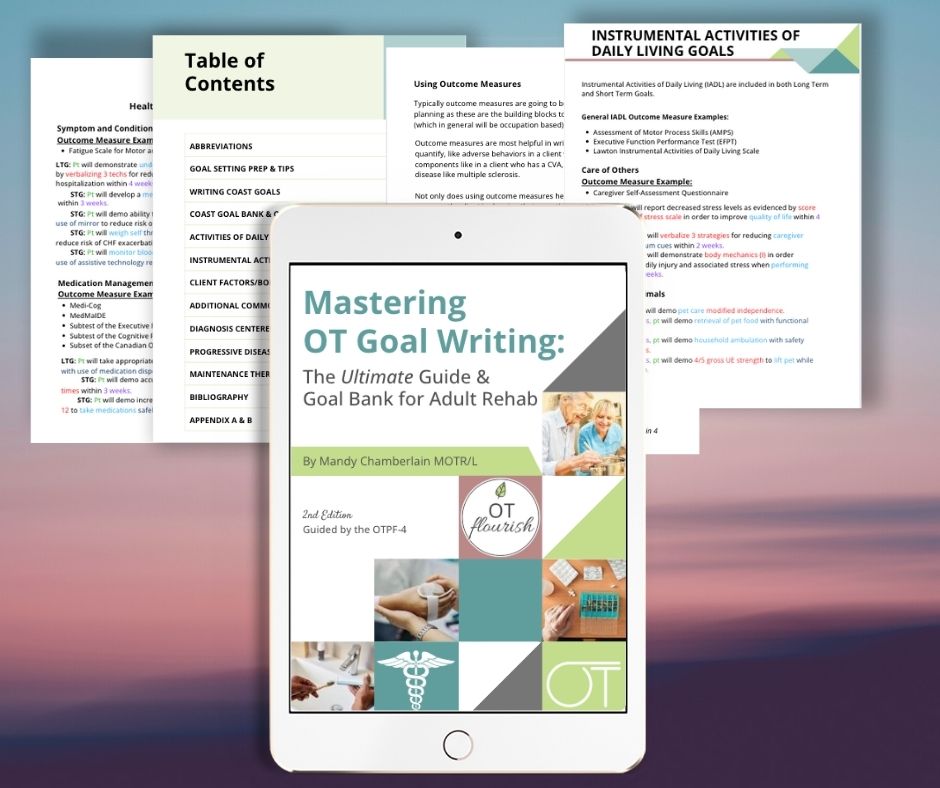How can the Allen Cognitive Levels help you to provide better treatments for our patients with a cognitive impairment? How can we use this theory to make better discharge planning? How can we help our patient’s be successful in their own environments with dementia?
Dr Patricia Cornille OTD and Carol Luhman OTR, both former presidents of the Allen Cognitive Network, share how we can integrate this model into our practice to produce better client centered treatments and help our patient’s live life to the fullest!
Part 1
Part 2
What are the 6 Allen Cognitive Levels?
The Allen Cognitive Levels Screen (ACLS) is a great tool to assess an individual’s cognitive abilities and used to help guide treatment plans in occupational therapy. It is a six-level scale that assesses an individual’s ability to understand, remember, and act on information.
- Level 1 is the most basic level, which includes activities such as recognizing familiar objects and following simple instructions.
- Level 2 includes more complex activities such as matching objects, recognizing patterns, and solving simple problems.
- Level 3 includes more advanced activities such as sequencing, problem-solving, and categorizing.
- Level 4 includes activities such as planning, organizing, and abstract reasoning.
- Level 5 includes activities such as making decisions, problem-solving, and using multiple strategies.
- Level 6 includes activities such as problem-solving, planning, and abstract reasoning.
Resources:
Starting an Allen Cognitive Level Program Guide
LACLS – Large Allen Cognitive Level Screen
Correlates with the Global Deterioration Scale
Pat Cornille’s website – Vita Cura: Memory Care in Communities






